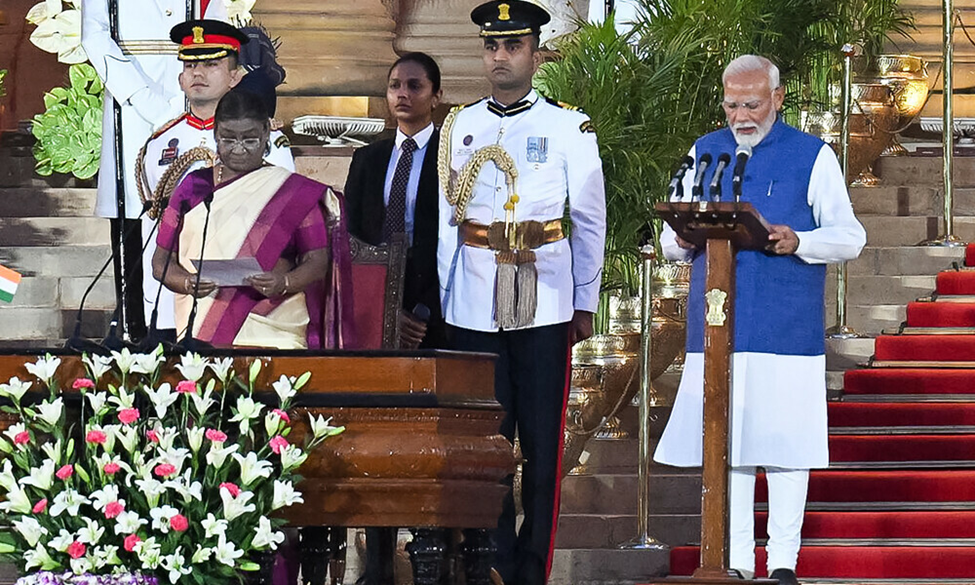The private sector is looking to the Prime Minister and his administration to introduce policies and initiatives that address the challenges faced by businesses and unlock new avenues for investment and expansion. After weathering the economic turbulence of recent years, industry leaders are hopeful that Modi's third term will usher in a phase of transformative change.
As Prime Minister Narendra Modi begins his third term in office, the business community in India is holding high hopes for the upcoming Union budget. India Inc. is eager for the government to undertake bolder reforms that can drive the country's economic growth and development.
With a renewed mandate, the government is expected to show greater urgency in implementing reforms that can streamline regulatory frameworks, improve ease of doing business, and foster a more conducive environment for entrepreneurship and innovation. The business community is anticipating bold decisions and strategic interventions that can unleash the full potential of India's economy.
As the nation looks to the future, the expectations from the upcoming Union budget and the Modi government's third term are high. The private sector is eager to partner with policymakers in crafting a roadmap that can accelerate India's progress and strengthen its position as a global economic powerhouse.
As Prime Minister Narendra Modi embarks on his third term, India Inc. is calling for "bolder reforms" to establish a strong foundation for a Viksit Bharat (developed India). Deepak Sood, Secretary General of the Associated Chambers of Commerce and Industry of India (Assocham), stated that both industry leaders and global investors feel "reassured" by the prospect of "fast and bolder reforms." Sood emphasized that these reforms should extend beyond the economic sphere, encompassing broader governance, quality of life improvements, and leveraging the aspirations of the young population. "We have been listening to your messages carrying conviction of bolder measures for taking India to the next level of development," he said.
Business leaders are also eagerly anticipating the upcoming Union budget. Assocham President Sanjay Nayar expressed optimism, saying, "We are looking forward to the forthcoming regular Budget of the new government, which should serve as clear policy directions and priorities of the NDA Government." He added that Assocham would soon submit its budgetary recommendations to the new finance minister.
Prime Minister Modi took the oath of office alongside 72 ministers in the new coalition government, which includes 30 Cabinet ministers, five ministers with independent charges, and 36 Ministers of State. Their portfolios are yet to be announced.
The Federation of Indian Chambers of Commerce and Industry (Ficci) echoed this sentiment, with its president Anish Shah stating that the third term of the National Democratic Alliance (NDA) would ensure continuity of reforms. "We look forward to progressive policies and measures that will foster economic and social development and build a strong foundation for Viksit Bharat," Shah said.
Sanjiv Puri, Chairman and Managing Director of ITC Ltd and the new president of the Confederation of Indian Industry (CII), described this period as a "pivotal moment for India." He noted that with a robust growth rate of 8.2% for 2023-24, the new government under Modi's leadership could usher in the next phase of reforms. "This is a pivotal moment for India, and Indian industry is keen to work with the incoming government to further accelerate the developmental journey of the nation," he stated in a CII post on social media platform X.
Sanjeev Krishan, Chairperson at PwC India, highlighted the government's role in shaping the economic and social future of the "world’s most populous and young democracy." He outlined three priority areas: enhancing youth engagement through skill-driven employment and entrepreneurship initiatives, bolstering India’s innovation landscape through research and development with appropriate incentives, and developing policy and regulatory frameworks in collaboration with industry and academia to effectively leverage technology. Additionally, he stressed the importance of embedding sustainability as a core principle in government initiatives and public-private partnerships. "Moving sustainability from a risk-protocol to a strategic opportunity," he added.
Anand Mahindra, Chairman of Mahindra Group, shared his optimism on X, saying, "Hope the new term will prove to be important for the development and prosperity of India."


Comments